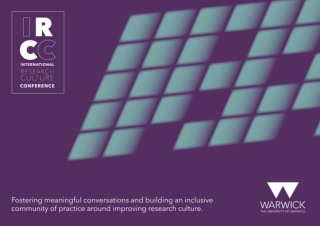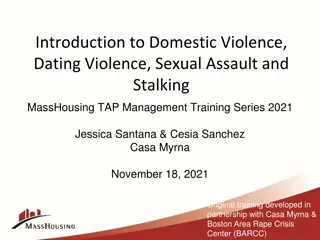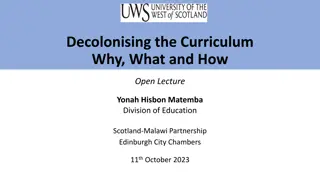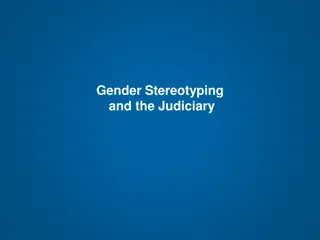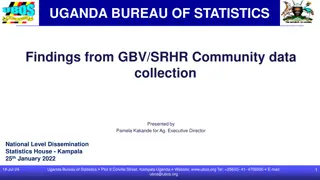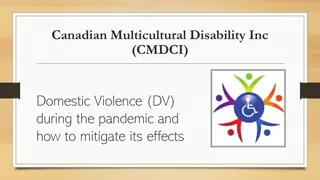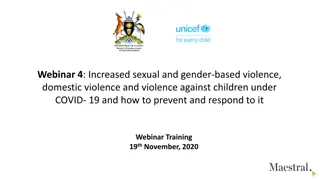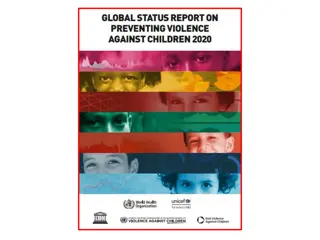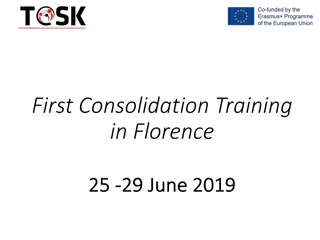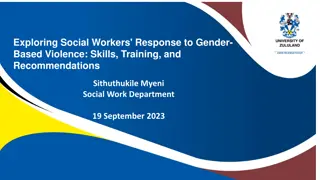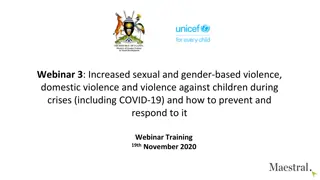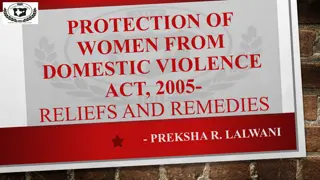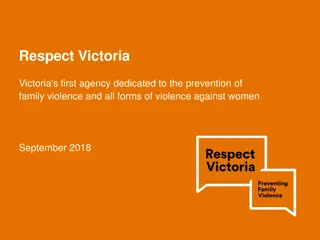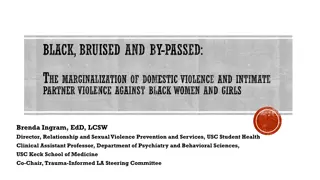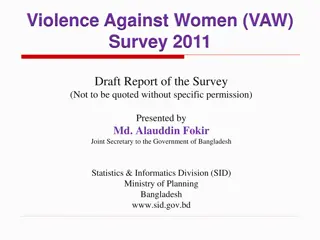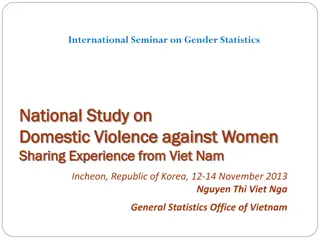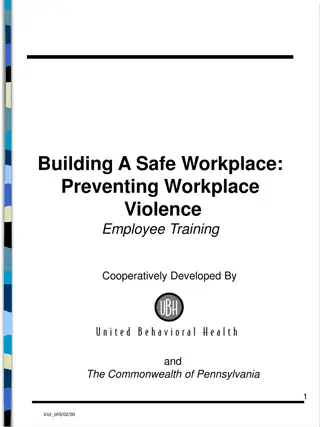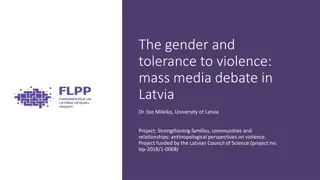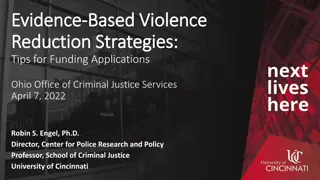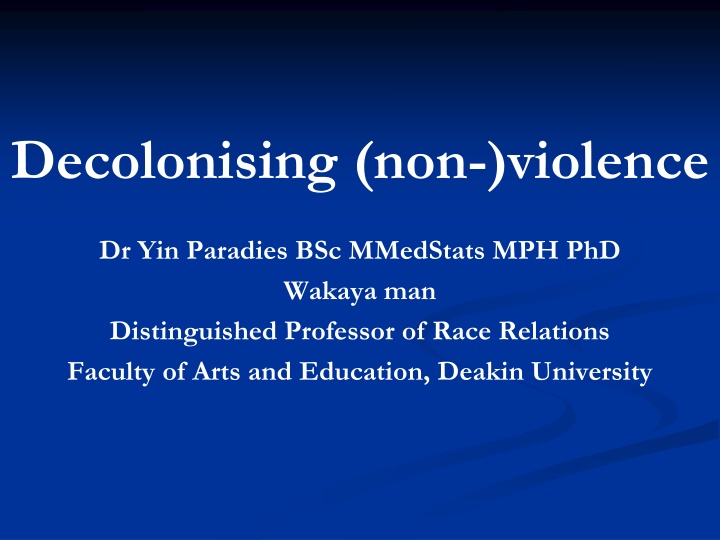
Decolonising Violence: Transformative Reflections on Non-Violence and Modernity
Delve into the insightful exploration of decolonising violence by Dr. Yin Paradies, examining detrimental violence, modernity's impact, and the paradigm shift towards non-violence. Reflect on the nuances of violence, from justifications to willful ignorance, and discover the essence of non-violence through relinquishing mastery and embracing change beyond modernity's constraints.
Download Presentation

Please find below an Image/Link to download the presentation.
The content on the website is provided AS IS for your information and personal use only. It may not be sold, licensed, or shared on other websites without obtaining consent from the author. If you encounter any issues during the download, it is possible that the publisher has removed the file from their server.
You are allowed to download the files provided on this website for personal or commercial use, subject to the condition that they are used lawfully. All files are the property of their respective owners.
The content on the website is provided AS IS for your information and personal use only. It may not be sold, licensed, or shared on other websites without obtaining consent from the author.
E N D
Presentation Transcript
Decolonising (non-)violence Dr Yin Paradies BSc MMedStats MPH PhD Wakaya man Distinguished Professor of Race Relations Faculty of Arts and Education, Deakin University
Detrimental violence Ends justifying means and other necessary evils Correction, contraction, contest, coercion, control Willful ignorance, abuse, gas-lighting and oppression Complicities, disguises, deceits, demonisations / idealisations, projections, silences and weaponisations Assumptions, aversions (dislikes), addictions (likes) Traumas (hurt people/cultures hurt people/cultures)
Modernitys violence Abstraction, alphabetisation, anonymity, atomisation Destitution, disassociation, disposability, exploitation Force, instrumentalisation, (in)toxification, modularity Objectivity, paternalism, perfectionism, power over Quantification, rationalism, reductionism, scheduling Standardisation, systemisation, scalability, urgency Valuation, violation, virtualisation and weaponisation
Thinking as violence We justify violence when we cut ourselves off from the wisdom, knowing and empathy of our bodily feelings, intuitions, instincts, sensations, vibrations What if, instead, we attended to qualities of attention, emergent patterns, minutiae of our surroundings and tangible responsiveness to what IS here and now Non-violence is a letting go of mastery, arbitration, correctness and progress; we must surrender our need to be certain, right and good (Lawson 2021)
Beyond modernitys mastery What if we stopped fixing, forcing and yoking the inherent vastness and radical incoherence of life to instead embrace the mystery of its unfoldment To engage in emergences that spill away from our containment, outside our rational control, as caesuras without clear channels; eschewing the perpetual antagonism of resistance and the escape of refusal Rather than passivity, non-violence is a receptive relinquishment that cultivates a conduc(t)ive context for channelling/catalysing change (Ewara 2023)
What is non-violence? Care, courage, integrity, love, sacredness, vulnerability Humility and honesty (with yourself and with others, when safe) while opening our hearts to those whose views and actions we profoundly object to Emotional stability, relational maturity, intellectual discernment and intergenerational responsibility Accepting ourselves unconditionally, just as we are, while staying wide open to growth; connection, conflict, conviviality, co-liberation and cooperation
(Non-)violence of Indigenous societies Eccentricity/individuality (not individualism)/context sensitivity (no inherently oppressive abstracted rules) Inter-dependence rather than (in)dependence within layered nested distributed authority and leadership A prefigurativity in which the ends never justifies the means; instead, the means are the ends Ritualised, ceremonial and distributed (predominately physical) violence rather than modern intense- ubiquitous emotional, physical and spiritual violence
What is fierce egalitarianism? A relational equilibrium of autonomy among inter- dependent beings free to choose and act while remaining immersed in deep connection / obligation with each other (i.e., no command obedience system) Downward levelling peer norms (violence?) such as teasing, banter, mockery, ridicule, shunning, ostracism etc. which balance against over inflated egos Guidelines for behaviour linked with profound respect for the wellbeing of other human and more- than-human entities, beings, spirits, forces etc.

